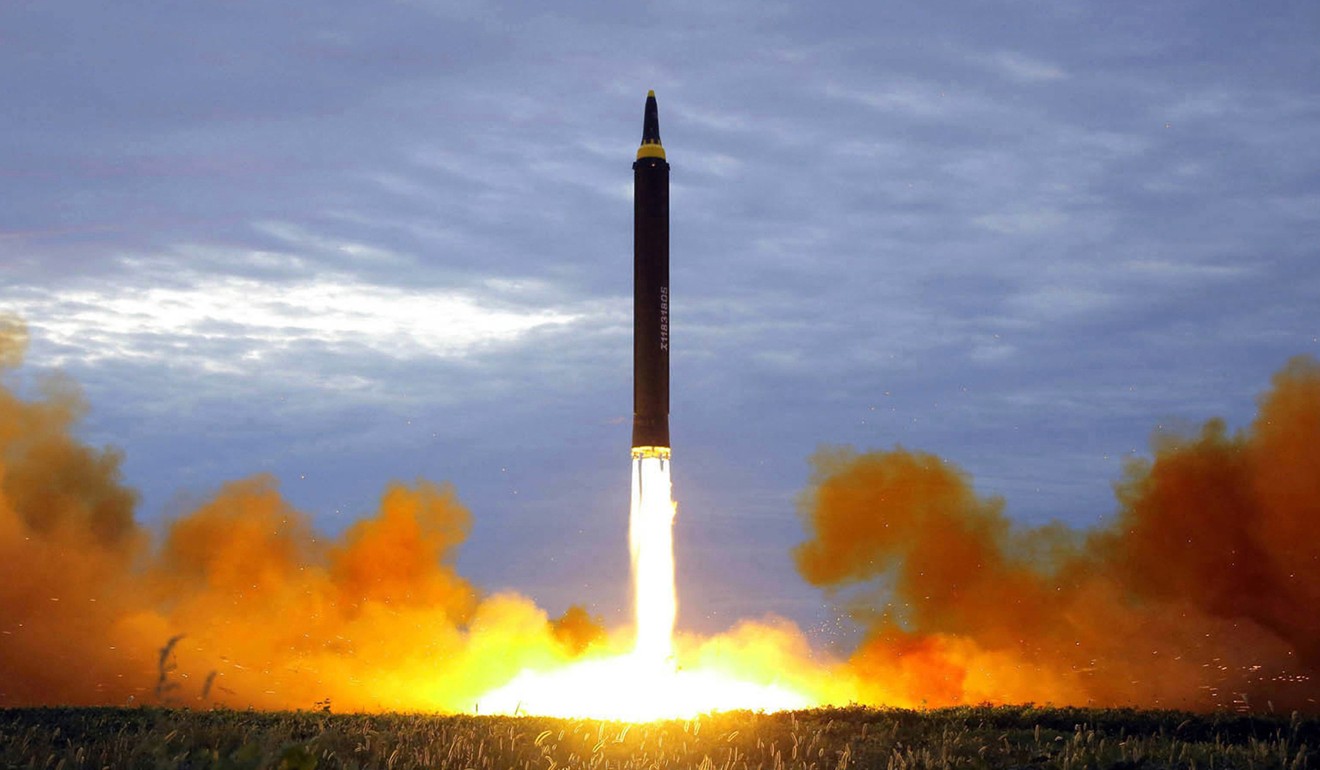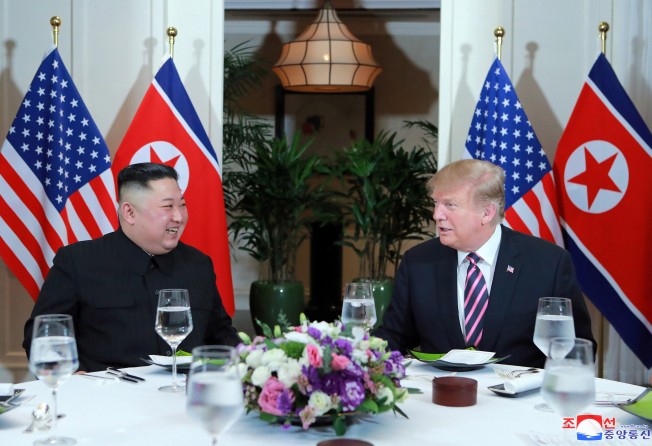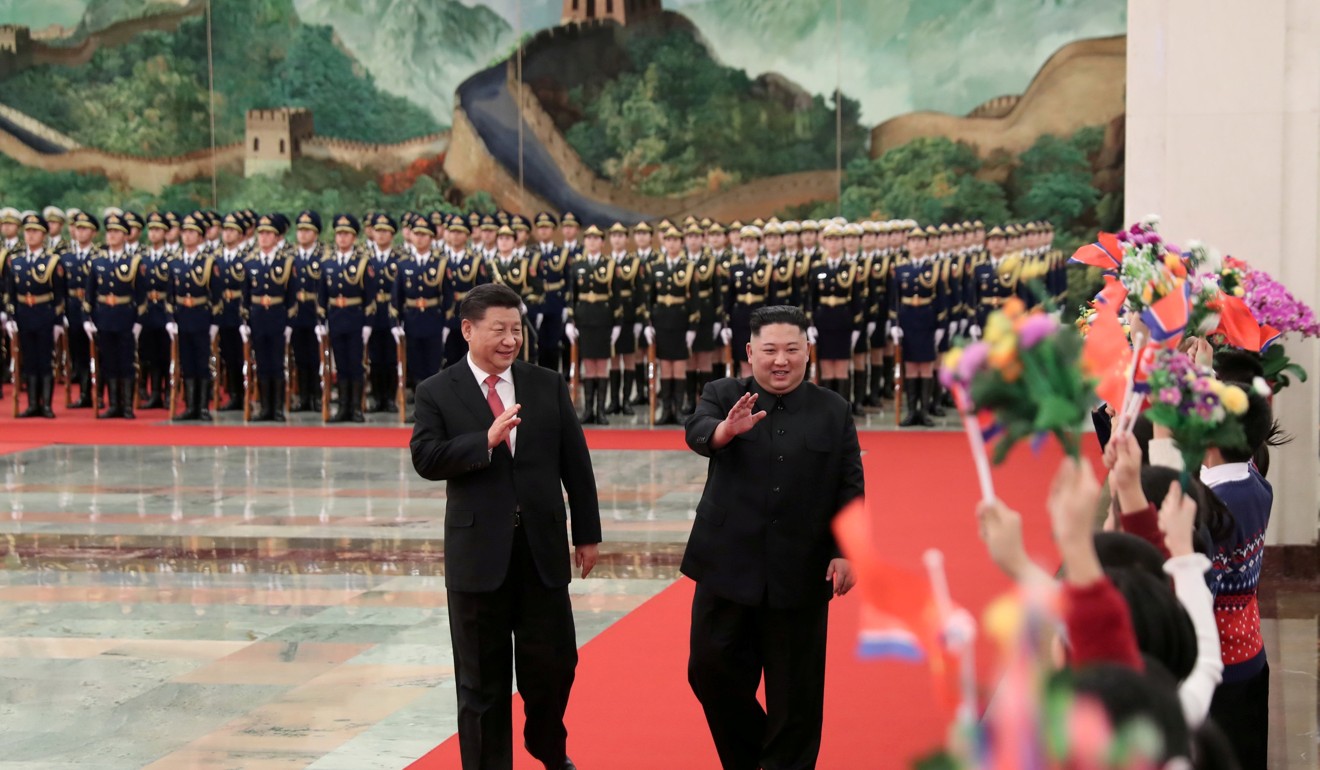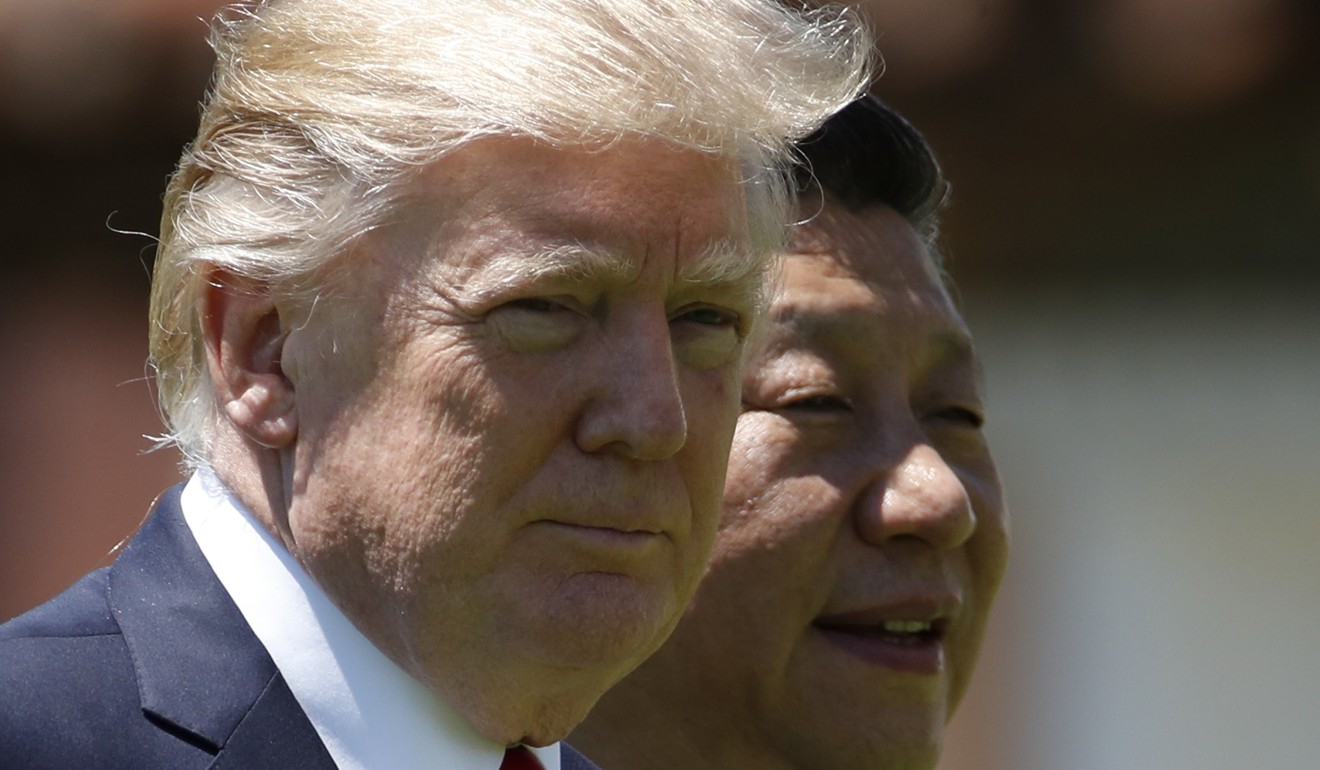
What have North Korean nukes got to do with the US-China trade war? Everything
- Donald Trump, Xi Jinping, Kim Jong-un. They’re stuck in a three-way chess game in which two seemingly unconnected issues are being used as leverage
- Here’s what the endgame looks like

Trade and nuclear weapons. On the surface, they seem like two completely different issues. One is business, the other is geopolitics. But US President Donald Trump has made no bones about linking the two.
This is why the two most watched diplomatic events of the past year or so – the negotiations between the United States and China to alleviate a trade war between the world’s two largest economies and the two summits between Trump and North Korean leader Kim Jong-un to avoid a nuclear war between the world’s sole superpower and its most repressive communist state – have been so heavily intertwined.
The two issues are part of a three-way chess game between China, the US and North Korea, one that in recent months has involved diplomats frequently shuttling between the three countries for talks.
Trump, a property tycoon turned president known for being results oriented, sees everything as a commodity that has a price and is thus negotiable. For evidence of that, just look at his book, The Art of the Deal. He has repeatedly suggested there will be trade-offs between the trade-war talks and the negotiations over Pyongyang’s nuclear ambitions. He has switched several times between praising and blaming Beijing for its help and hindrance on North Korea, even as the tariff war escalates and negotiations between the countries falter.

Beijing, too, has used every possible occasion to remind Washington that it can complicate Trump’s pursuit of ridding the North of nuclear weapons if China and the US fail to strike a deal on their trade row.
When Washington and Pyongyang resumed direct contact to arrange their first summit last March, Chinese diplomats had initially feared a loss of influence with Beijing’s often recalcitrant ally. Since then, Beijing has invited Kim to visit China on four separate occasions – in March, May and June last year and January this year – with two of the visits occurring just days before the Trump-Kim summits.
Each time Trump toughened his tone on trade, Kim was invited to visit China. Why? Because Beijing wanted to send a message to Washington that “you can’t negotiate with Kim without our help”.
Indeed, North Korea could not even survive without Beijing’s support, let alone stand up to the might of America.

Trump’s key strategy on North Korea is to use sanctions to apply maximum pressure on the isolated country. However, such tactics rely on Chinese cooperation, as more than 90 per cent of North Korea’s external trade passes through China.
Following the collapse of the Trump-Kim summit in Hanoi last month, when Pyongyang threatened to withdraw from talks with Washington completely and reconsider its decision to stop missile and nuclear tests, Trump apparently turned to China to break the stalemate.
That explains why Trump’s envoy on North Korea, Stephen Biegun, was in Beijing this week. Biegun’s China trip, the third since he was appointed last August, came amid claims of progress in the “historic” trade talks. Biegun’s trip also came days before US Trade Representative Robert Lighthizer and Treasury Secretary Steven Mnuchin’s trip to Beijing this week and Chinese chief negotiator and Vice-Premier Liu He’s reciprocal visit to Washington for more discussions starting April 3. Those talks are aimed at finalising what Trump has called the “one of the largest deals ever made”.
The North Korea issue has given China leverage over the US in the trade talks. Washington might have demanded too many concessions from Beijing.

China’s communist rulers might see Washington’s many requests – that it make structural changes to its model of party-led state capitalism, that it curtail privileges for state-owned enterprises, and that it scrap Beijing’s ambitious “made in China 2025” programme – as an effort to undermine both one-party rule and the seemingly lifelong grip on power of President Xi Jinping, chief of the party, state and army.
Even after several months of to-and-fro, it’s hard to know exactly where things stand between the US and China and between the US and North Korea, or even what has already been agreed on.
As Lighthizer remarked recently, “there’s no agreement on anything until there’s agreement on everything”.
Forget Trump and Kim – North Korea’s first sister Kim Yo-jong lurks, hovers and steals the spotlight
Following the Hanoi summit with Kim, Trump warned that the trade talks with China could end in a similar disappointing fashion – even as he acknowledged Beijing’s support.
The logic is clear: if Washington and Beijing reach a historic deal on trade, a similar deal between Washington and Pyongyang will probably follow. If they fail to reach such a deal, Beijing will not allow its ally to strike a strategically significant deal with its chief rival regarding the nuclear dispute.
It seems that, in this instance, trade and nuclear weapons are two sides of the same coin. ■
Cary Huang is a veteran China affairs columnist, having written on the topic since the early 1990s